#monosaccharide
Explore tagged Tumblr posts
Text

Monosakurai
2 notes
·
View notes
Text

TSRNOSS, page78.
#cellulose#glycogen#polyuria#monosaccharide#ringed form#war#epidemic#cortisol#cursive#manuscript#journals#handwriting#calligraphy#notebooks
1 note
·
View note
Text
Figure 25.2a,b shows the structural formula of uridine, a nucleoside derived from ribose and uracil. (...) Figure 25.2c shows thymidine, which contains 2'-deoxyribose as the monosaccharide component.

"Chemistry" 2e - Blackman, A., Bottle, S., Schmid, S., Mocerino, M., Wille, U.
#book quotes#chemistry#nonfiction#textbook#structural formula#uridine#nucleoside#ribose#uracil#thymidine#deoxyribose#monosaccharide#chemical structure#glycoside#chemical bonding
0 notes
Text
Because the anomeric carbon atoms of both the glucopyranose and fructofuranose units are involved in formation of the glycosidic bond, neither monosaccharide unit is in equilibrium with its open-chain form.
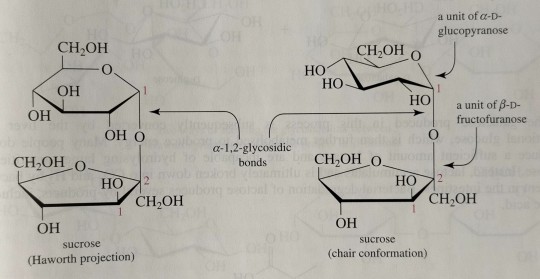
"Chemistry" 2e - Blackman, A., Bottle, S., Schmid, S., Mocerino, M., Wille, U.
#book quote#chemistry#nonfiction#textbook#sucrose#haworth projection#char conformation#glucopyranose#fructofuranose#glycoside#monosaccharide#equilibrium
0 notes
Text
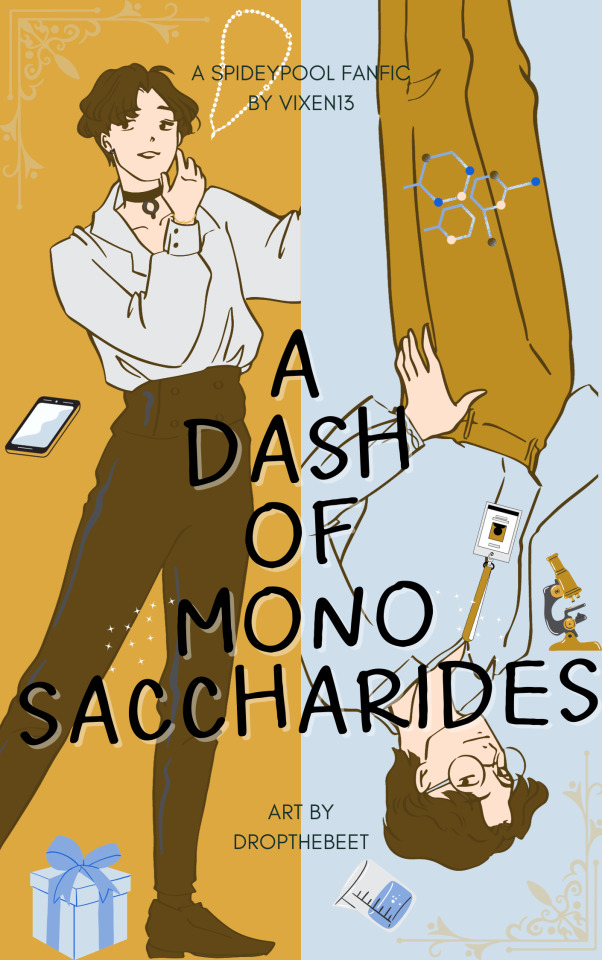
Masterpost
A Dash of Monosaccharides
Read It Here!
Story by Vixen13 Art by @dropthebeet-ao3
Summary: CEO Wade Wilson is the bane of his PR department’s existence. He’s got no filter, a bad reputation, and a face only a mother could love. Needing someone to stay by his side and keep him from doing anything stupid in front of his peers, he delves into the sugaring world. His ability to hire a date goes about as well as his ability to find a date through normal means, and he’s ready to give up when he meets the sassy twink of his dreams.
Peter has been sugaring for years to get him through college, and he’s experienced enough to be a little picky about his next daddy. Still, he wasn’t expecting such a one-sided offer from a scarred, bumbling man who acts nothing like what his bank account says he should. Of course, Peter isn’t going to turn down such a lucrative deal. If arm candy is what Wade wants, then Peter will make sure the man gets his money’s worth.
Links to chapter art and teasers will be added as they are posted: Chapter 1 Chapter 2 Chapter 3 Chapter 4 Chapter 5 Chapter 6 Chapter 7 Chapter 8 Chapter 9 Chapter 10 Chapter 11
*book cover made on Canva by Vixen
86 notes
·
View notes
Text
why are carbohydrates so complicated i hate macromolecules what the fuck is a polysaccharide
#auburn's rambles <3#theyre found in plant cell walls....pectin>?????#dies monosaccharides u will be the death of me
17 notes
·
View notes
Text
hunter: i saved sebastian’s life today.
nick: what? how?
hunter: self control.
#glee#incorrect glee quotes#the warblers#glee incorrect quotes#incorrect quotes#hunter clarington#nick duval#sebastian smythe#i’m not dead my school just started.#I NEED TO DROP OUT OF AP BIO NEOOOOOW#WHAT THE FUCK IS A MONOSACCHARIDE 🦅💥#god i love sebastian smythe
37 notes
·
View notes
Note
trick or (glances nervously) treat

Don’t be scared have a sock-er! A sockipop?
3 notes
·
View notes
Text
Wish me luck for my test today guys I’m gonna NEED IT
#whatttt is the difference between a polysaccharide and a polyol actually help me#like how many monosaccharides are in a polyol google is not answering my question#also struggling so hard to memorise the digestion of carbohydrates#omgggg and the whole n-3 shit for fats#don’t even get me started on memorising the bmi ranges#gvf unrelated#authors musings#university
0 notes
Text
FUN FACT TIME !!!!!!!!!!!!!!!!!!!!!!!!!!!!!!!!!
So, when you eat carbohydrates that cannot easily be broken down (by hydrolysis*) into glucose molecules, they don't get released into glucose molecules in your small intestine as would, for example, simpler sugars like sucrose that is only two monosaccharides (single sugars) long.
This means that these carbohydrates reach your large intestine not fully broken down. So, they tend to be fermented by gut bacteria instead. This has the lovely side effect of making one fart, as well as the genuinely lovely side effect of causing gut bacteria to (A) generally be healthier and (B) produce butanoic acid salts (known as butyrates), which are really important to regulate metabolism, and also produces SCFAs and idk what they do but Wikipedia makes it sound like they're good.
This is also why fibres (which is a broad term including things like cellulose*, so non-starch carbohydrates that aren't as easy to hydrolyse) are good for you - because they are a little bit tougher to digest, so they reach your large intestine where they are fermented by gut bacteria rather than simply instantly getting broken down into glucose the second they encounter a teeny bit of amylase.
But it gets even more interesting than that!
Starches that cannot be easily broken down are called Resistant Starches, right? Resistant starches include amylose. Amylose is a long straight chain of glucose molecules, which contrasts with the other type of starch, amylopectin, which has branches.

Because of its branching, amylopectin has a high surface area to volume ratio, so it is easier to digest. Amylose has a lower surface area to volume ratio so it is roughage and is trickier to digest, so it reaches the large intestine.
Also, in plant cells, starch is often stored in granules. What do we do when we cook food? The heat causes granules to expand, start leaking, or even burst completely, thus making our food easier to digest. It is harder to digest if you have to eat through the granule first before you can even START to break down the polymers. Cooking means that often times, the starch is Literally Right There, so it makes the food much easier to digest.
Anyway, stuff that is Really easy to digest, you get the sugar all at once, so it goes into storage or you get super energetic but it doesn't give you a good lasting amount of energy like slower-releasing starches do.
This all explains... like everything that people say about how you need to eat healthy. (Except for the stupid things like that you need to cut carbs.) It explains why fibre helps digestion, why more complex carbohydrates are often healthier than simple ones like sucrose, WHY WE COOK FOOD!!!!!!!!!!!!!!!!! IT'S SO COOL
Explanations for those who are confused by terminology under the cut:
*cellulose is found in cell walls and is a carbohydrate that is really tough since it forms a lattice shape. It is the stuff that makes wood so strong, and also forms part of lignin AKA tree bark.
*Basically, carbohydrates are made of single sugars that bond together by condensation. Condensation reactions are when on the end of two monomers, there is an OH group and an OH group, and then one of the OHs gets removed and another H+ off of the other OH is removed. This means both monomers are then sharing the one oxygen left, and there is a water molecule produced hence the name. Hydrolysis is the inverse of this - when a water molecule is split into OH- and H+ and then it breaks apart a polymer.
199 notes
·
View notes
Text
Story at-a-glance
High-fructose corn syrup (HFCS) is not chemically identical to table sugar. While table sugar is a bonded disaccharide of fructose and glucose, HFCS contains these sugars separately as unbound monosaccharides, leading to different metabolic effects in the body
When consumed, HFCS's fructose component bypasses normal sugar metabolism and goes directly to the liver where it is stored as fat, while providing no satiety signals to the brain, contributing to overconsumption
A Princeton University study found that rats fed a steady diet of HFCS all became obese, suggesting a link between increased HFCS consumption and America's obesity epidemic that began in the early 1990s
The food industry has attempted to obscure HFCS content by renaming high-concentration versions (HFCS-90) as "fructose" or "fructose syrup" on ingredient labels, allowing products to claim they contain no high-fructose corn syrup
Natural sugars found in whole foods like honey, maple syrup, and fruits contain additional beneficial compounds like antioxidants, vitamins, minerals, and fiber that help moderate sugar metabolism and provide health benefits not found in isolated sugars
81 notes
·
View notes
Note
Do you know how invert sugar works? I've heard a lot of conflicting things about it and it seems to be increasingly popular in packaged foods and restaurant food which is frustrating cause it seems to be an IBD trigger for me. I avoid artificial sweeteners cause they're triggers for me, but invert sugar is increasingly in things that say all natural or no artificial sweeteners, is it natural? what is it?
It is natural! Or, well, it uses natural ingredients. It's sucrose (a disaccharide, white sugar) split into glucose and fructose (monosaccharides) through a simple chemical process (boiling and optionally adding some acid).
Sucrose is the common kind of sugar that we use all the time; it is made up of two simpler sugars: fructose, which we often think of as "fruit sugar," and glucose, the most common carbohydrate in nature (it's the product of the Krebs cycle and it's the carbohydrate that your body turns into stored energy through glycolysis). Here's a diagram of a sucrose molecule:
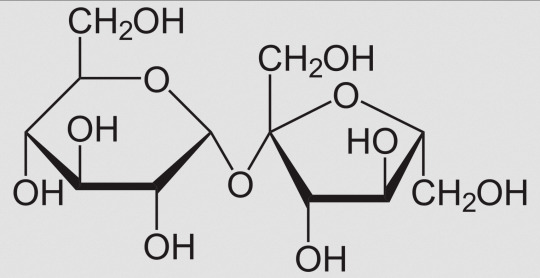
you can see that it already looks like two molecules, kind of, with just one oxygen atom in the center to hold it together. If you split this molecule with a chemical reaction, it will create distinct glucose and fructose molecules:
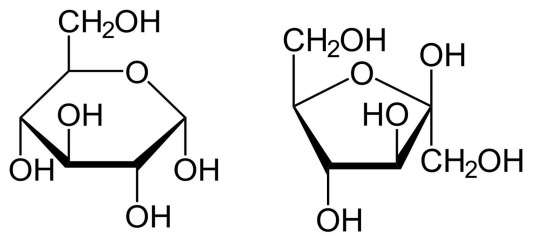
(Glucose is on the left, fructose on the right).
If you want to make your own invert sugar you can do so on your own stovetop right now. All you have to do is mix sugar, water, and lemon juice.
Have you ever made simple syrup for sweet tea? Or made hard candy? Simple syrup is 1:1 white sugar and water. Hard candy is 4:2:1 white sugar, water, and sugar syrup. Invert sugar is a syrup in between those two which is about 2:1 sugar to water with a very small amount of acid added.
There are several reasons that bakers and confectioners will do this, including:
moisture - invert sugar is a humectant
texture - the addition of invert sugar can help control crystallization of sugar in candy-making
sweetness - invert sugar is slightly sweeter than white sugar
appearance - invert sugar helps things to brown faster
So invert sugar can be totally natural, it's easy to make at home, and it has lots of uses in cooking that are difficult to achieve without introducing more ingredients or ingredients that might change the appearance or structure of the final product. However, if you have issues with processing fructose, invert sugar is likely going to be a problem for you.
Honestly this kind of question (which I had a lot more of after getting diagnosed with food allergies and celiac disease!) is part of why I started getting more into cooking and more into learning about food production and nutrition. When you have to learn about hidden sources of corn in the American food system you have to learn a LOT about food and you come around firmly to the idea that "natural" on food product labels is at best useless and at worst misleading.
When you (you specifically, anon) are looking at a food label you're likely looking to see if it's going to cause problems for you. You're not really looking to see if it's natural, but "natural" has become a kind of shorthand for "no high fructose corn syrup" - if what you're avoiding is fructose, natural is not the word to look out for.
240 notes
·
View notes
Text
A Dash of Monosaccharides - Chapter 1

Excerpt
“I’ve seen you wandering around all night not talking to anyone. You look suspicious, you know that?” “I’m aware,” Wade muttered, scuffing his shoe against the shiny tiles under his feet. He was covered from head to toe, gloves included, and no matter how fine the clothing, it did him no favors. Topped with the mask, he looked like a serial killer searching for a new victim, but he assumed that seeing what was under it would be far worse. “You’re interesting.” The baby cocked his head to the side before extending one arm out to offer his hand. “My name’s Peter.” “Uhhh…” Wade clasped the perfectly manicured hand with his suede lambskin. “Wade.” “So are you seeking an arrangement, Wade?” Peter asked, his voice smooth as hot cocoa. “Isn’t that my line?” Wade pulled his hand back and tugged at the collar of his shirt. He wasn’t going to survive the night. This had been a terrible idea. “I mean…sorry. My mouth gets away from me.” “It’s fine.” Peter smirked. “Feels like I’ll actually get the truth out of you.” A nervous, slightly strangled laugh built up in Wade’s throat, but he coughed it out. “Right, uh…well, yeah. Looking for an arrangement.” “You look like a blowjob kinda guy.” Wade stamped down on every perverted joke that threatened to burst out of his mouth. He was a blowjob guy, but he wasn’t about to admit it. Well, he wanted to admit it, announce it, tell every joke in the book about it. But he shouldn’t. “You don’t seem like you’re lookin’ for that kind of arrangement.” Peter’s grin grew a little wider. “Smart guy.”
Read The Fic Here Tumblr Masterpost Here
Vixen13 @thatvixenchick DropTheBeet @dropthebeet-ao3
38 notes
·
View notes
Text
Tutoring Sessions with Johnny Joestar: Macromolecules
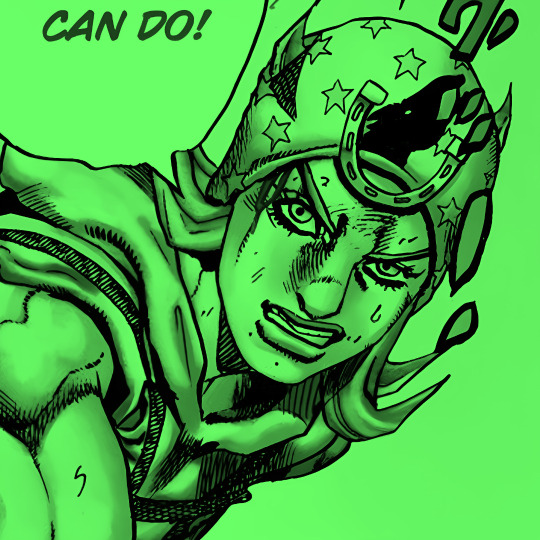

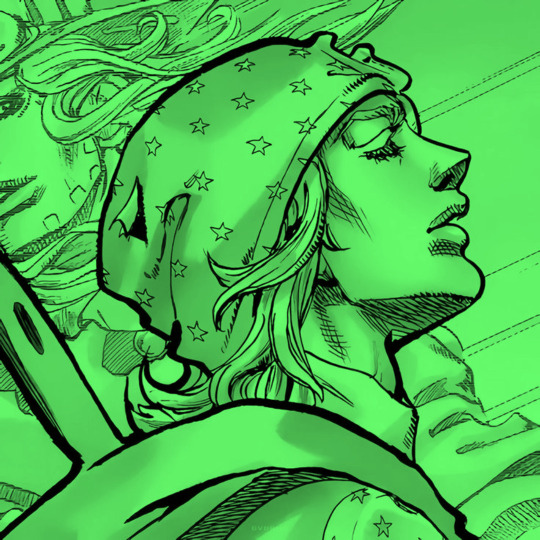
a/n: the fall semester just started and this is my first time taking biology so I'm writing fanfiction to help me study LMAOOO
⋆ ˚。⋆୨୧˚⋆ ˚。⋆୨୧˚⋆ ˚。⋆୨୧˚⋆ ˚。⋆୨୧˚⋆ ˚。⋆୨୧˚⋆ ˚。⋆୨୧˚⋆ ˚。⋆୨୧˚⋆ ˚。⋆୨୧˚⋆ ˚。⋆୨୧˚⋆
It was a late afternoon, and the sun streamed through the library windows, casting a warm glow across the tables. The campus was quieting down as students finished their classes for the day, but you were still hard at work, sitting in a cozy corner with your biology textbook open in front of you.
Next to you sat Johnny Joestar, your lab partner and a cute guy you’d gotten to know over the semester. He had offered to help you study for the upcoming biology exam, and you were grateful for his help—especially since you were struggling to wrap your head around macromolecules.
Johnny leaned back in his chair, casually flipping through his notes. “Alright,” he began, glancing at you with a small smile. “Let’s start with the basics. Do you know what a macromolecule is?”
You nodded slowly. “I think so. It’s a large molecule made up of smaller units, right?”
“Exactly,” Johnny replied, leaning forward, his blue eyes focused on you. “Macromolecules are big, complex molecules that are essential for life. There are four main types: proteins, nucleic acids, carbohydrates, and lipids. Each of these has a unique structure and function, but they’re all made up of smaller building blocks.”
“Got it,” you said, feeling a bit more confident. “And polymers?”
“Right. A polymer is a type of macromolecule. It’s basically a long chain made up of repeating units called monomers,” Johnny explained, tapping his fingers on the table as if to emphasize each point. “Think of it like a necklace, where each bead is a monomer, and the whole necklace is the polymer.”
You nodded, picturing the beads in your mind. “Okay, that makes sense. So, how are these polymers formed and broken down?”
Johnny grinned, clearly pleased with your progress. “Good question. Polymers are formed through a process called dehydration synthesis, or condensation. That’s when two monomers join together, and in the process, they release a molecule of water. On the other hand, breaking down polymers is called hydrolysis. That’s when water is added, breaking the bonds between monomers.”
You scribbled down notes, grateful that Johnny was making these concepts easier to understand. “Dehydration synthesis to build, hydrolysis to break down,” you repeated.
“Exactly,” Johnny said, giving you an approving nod. “Now, let’s go over the structures and functions of the four main types of macromolecules.”
He pulled out his own notes and started with proteins. “Proteins are made up of amino acids, which are their monomers. The sequence of these amino acids determines the protein’s shape and function. Proteins do a lot—they’re involved in everything from catalyzing chemical reactions to providing structural support to cells.”
He paused to let you catch up, then moved on. “Nucleic acids, like DNA and RNA, are made up of nucleotides. These nucleotides have three parts: a sugar, a phosphate group, and a nitrogenous base. Nucleic acids store and transmit genetic information.”
“Carbohydrates,” he continued, “are made up of sugar monomers called monosaccharides. They’re the main source of energy for living organisms. Simple sugars like glucose give us quick energy, while complex carbs like starch provide a slower, more sustained release.”
Finally, Johnny turned to lipids. “Lipids are a bit different—they’re not true polymers because they’re not made up of repeating monomers. But they’re still considered macromolecules. Lipids include fats, oils, and phospholipids. They store energy, make up cell membranes, and play a role in signaling within the body.”
You finished writing and looked up at Johnny, who was watching you with a small smile. “That was really helpful,” you said, feeling a sense of accomplishment. “I think I understand this stuff a lot better now.”
Johnny chuckled softly. “I’m glad I could help. You’re doing great—just keep going over your notes, and you’ll nail that exam.”
You smiled back, feeling a warm glow that had nothing to do with the setting sun. “Thanks, Johnny. I couldn’t have done this without you.”
He shrugged, but there was a hint of shyness in his expression. “No problem. I guess being lab partners has its perks.”
You both shared a quiet laugh, the atmosphere between you light and comfortable. As you packed up your things, you couldn’t help but feel a little closer to Johnny—not just as a lab partner, but as a friend who was genuinely invested in helping you succeed.
“Maybe we can study together again sometime?” you suggested, hoping you didn’t sound too eager.
Johnny’s smile widened, and he gave you a small nod. “Yeah, I’d like that.”
With that, you both headed out of the library, the evening air cool against your skin as you walked together across the campus, discussing plans for the next study session.
⋆ ˚。⋆୨୧˚⋆ ˚。⋆୨୧˚⋆ ˚。⋆୨୧˚⋆ ˚。 Thanks for Reading! ˚⋆ ˚。⋆୨୧˚⋆ ˚。⋆୨୧˚⋆ ˚。⋆୨୧˚⋆
#sbr#sbr imagine#sbr x reader#jojo sbr#jjba sbr#jjba x reader#jjba imagine#jjba part 7#johnny joestar x reader#johnny joestar imagine#Johnny joestar
39 notes
·
View notes
Text
TMI medical stuff below cut
I’m getting my cystoscopy on Thursday and I’m so miserable about it because I know for a fact it’s not going to show anything, I know they’re going to tell me that they don’t know why I get urinary pain + constant UTIs, and they’re probably going to prescribe me a long term antibiotic that isn’t going to stop anything. At most I get an IC diagnosis which is just as much of a garbage can diagnosis as smthing like fibro. Literally ‘we don’t know what’s wrong with u but u sure seem like ur in pain! :) maybe drink more water?’
It’s so infuriating. There are so many women who have these problems and there are very few medical professionals who actually keep up with diagnostic + treatment literature. If I want to keep pursuing treatment after this I would have to pay out of pocket for an online clinic and I cannot afford that. Im already on holistic methods which admittedly do help but I’m just paranoid waiting for the next one to strike while damn near attached to an IV of cranberry juice and D-mannose. Which is literally JUST A SUGAR. ACTUAL SUGAR PILL. ALDOHEXOSE MONOSACCHARIDE. I could write it’s fucking IUPAC NAME !!!!
I’ve been disabled my whole life + developed RA when I was 20 but nothing. NOTHING comes close to how horrible this has been for me. I don’t think anybody can understand the pain associated with it. I couldn’t even make a fist with my hand & I couldn’t walk without a limp & severe pain when my RA was at its peak and I would prefer that if it means I never got a uti again. It actually drives you insane & makes you so paranoid. I feel like the fucking joker. The piss joker. Kill me.
10 notes
·
View notes
Text

Got bored during bio and made the three monosaccharides into dandy's world OCs
9 notes
·
View notes